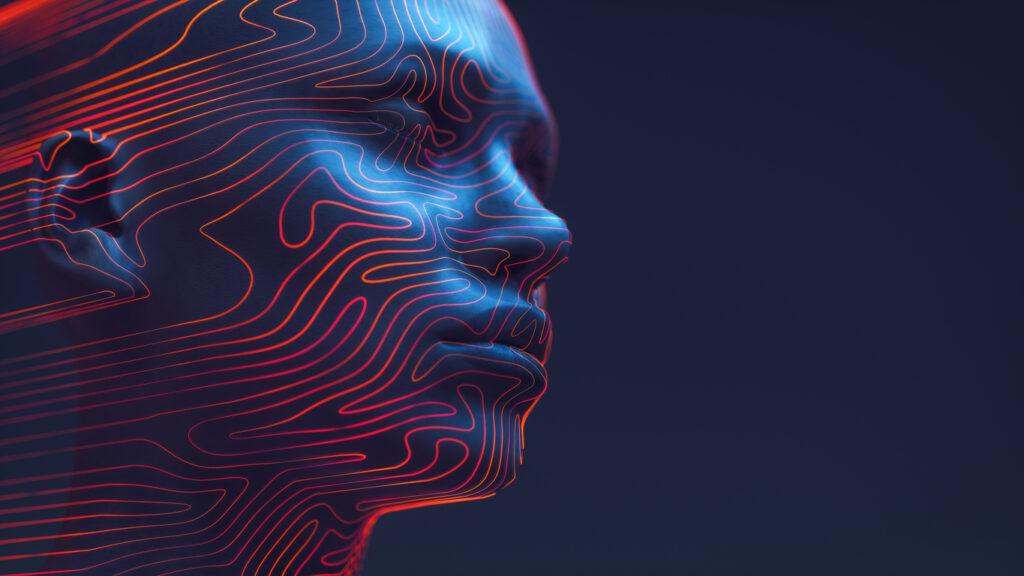These days, you can’t go anywhere or listen to anything without someone inevitably bringing AI into the conversation. In other words, the AI ship has landed and it is quickly infiltrating every aspect of modern society – including, somewhat surprisingly, the very human realm of psychotherapy. In the age of artificial intelligence, more people are turning to tools like ChatGPT for guidance, self-reflection, and even emotional support. Some people even claim that ChatGPT has been far more helpful to them than any therapist ever was. But can an AI chatbot really replace the deeply human experience of therapy?
At LynLake Centers for WellBeing, with locations in Minneapolis and St. Paul, we believe in using technology wisely while staying rooted in human connection and compassion. ChatGPT can offer helpful support in some situations—but it is not a substitute for working with a licensed mental health professional.
Make an Appointment
What Is ChatGPT?
ChatGPT is an AI-powered language model designed to generate responses to written prompts. People use it for everything from drafting emails to soliciting dating advice to asking questions about mental health. Some even use it to talk through emotions or explore cognitive behavioral therapy (CBT) techniques.
While ChatGPT may feel conversational, and its advice may even be quite helpful at times, there is no human on the other end of the chat, which means it is not “therapy.” And it’s important to know where its usefulness ends—and where real therapy begins.
How ChatGPT Can Support Mental Health
While it doesn’t replace professional care, ChatGPT can be a helpful tool between sessions or when you want to organize your thoughts. For example, it might help you:
- Reflect on your emotions through journaling prompts and summary statements
- Practice reframing negative thoughts
- Learn grounding techniques or breathing exercises
- Explore CBT-style questions or identify unhelpful thought patterns
- Remember coping strategies or self-care routines
Used intentionally, AI can support your therapy—not replace it.
Where ChatGPT Falls Short
As accessible as AI is, there are limits to what it can offer—especially when it comes to emotional healing and building resilience. Among its limitations:
- It lacks human empathy. ChatGPT can mimic compassion, but it doesn’t feel it. Nor can it offer the presence, attunement, or emotional safety that comes from sitting with a real person.
- It isn’t trained clinically. Therapists spend years studying how to support people through trauma, anxiety, depression, and more. ChatGPT cannot diagnose, treat, or provide care tailored to your unique history.
- It gives generalized advice. Even when responses seem personal, they’re not based on a real understanding of your lived experience.
- It’s not crisis-ready. AI tools aren’t built for emergency support or complex mental health challenges. It isn’t trained clinically.
Therapists spend years studying how to support people through trauma, anxiety, depression, and more. ChatGPT cannot diagnose, treat, or provide care tailored to your unique history.
IT’S NOT CONFIDENTIAL. Remember, we still don’t know how the information we submit to ChatGPT (or any other AI program) will be used. When it comes to the personal information you share with ChatGPT, you are not protected by HIPAA or any other privacy laws. That alone should give anyone pause before sharing vulnerable thoughts and feelings with an online robot.
Therapy is more than conversation. It’s about relationship, trust, and healing through connection. Research has shown time and again that much of the benefit people receive from therapy is a direct result of the connection between therapist and client. This relationship is more important than the specific type of intervention, number of sessions, or any other variable. It is also the one aspect of therapy that a chatbot can never truly replace.
What a Human Therapist Can Offer
At LynLake Centers for WellBeing, we believe therapy should feel like a relationship—not a transaction.
Our licensed therapists create a safe space where you can explore difficult emotions, develop new coping skills, and grow at your own pace. Whether you’re navigating anxiety, trauma, grief, or relationship stress, we use evidence-based methods—including CBT, mindfulness, and trauma-informed care—to support real change.
How AI and Therapy Can Work Together
Instead of seeing ChatGPT as a replacement for a human therapist, consider thinking of it as a supplement, supporting your mental health journey when used intentionally. For example:
- Supplemental support: ChatGPT can be a journaling partner, helping you articulate feelings you might later bring into your therapy session.
- CBT reinforcement: It can prompt questions similar to those used in cognitive behavioral therapy, helping you challenge unhelpful thoughts.
- Session preparation: If you’re feeling stuck, you can use ChatGPT to explore ideas or practice conversations before your next therapy session.
Keep in mind, however, the most meaningful insights—and the deepest healing—come from working with someone who knows how to support your full story, not just your symptoms.
Support That Goes Beyond AI
If you’ve found value in digital tools but are ready for deeper connection and personalized support, therapy might be the next right step.
At LynLake Centers for WellBeing, we offer in-person and online therapy across Minneapolis and St. Paul. Our experienced therapists provide individualized care designed to meet you where you are—with warmth, curiosity, and evidence-based guidance.
Want support from a real human who sees the whole you?
Reach out today to schedule a session with one of our therapists in Minneapolis or St. Paul who can help you take the next step—whether you’re processing emotions, exploring patterns, or simply ready to feel more grounded. Let’s build something real, together.

